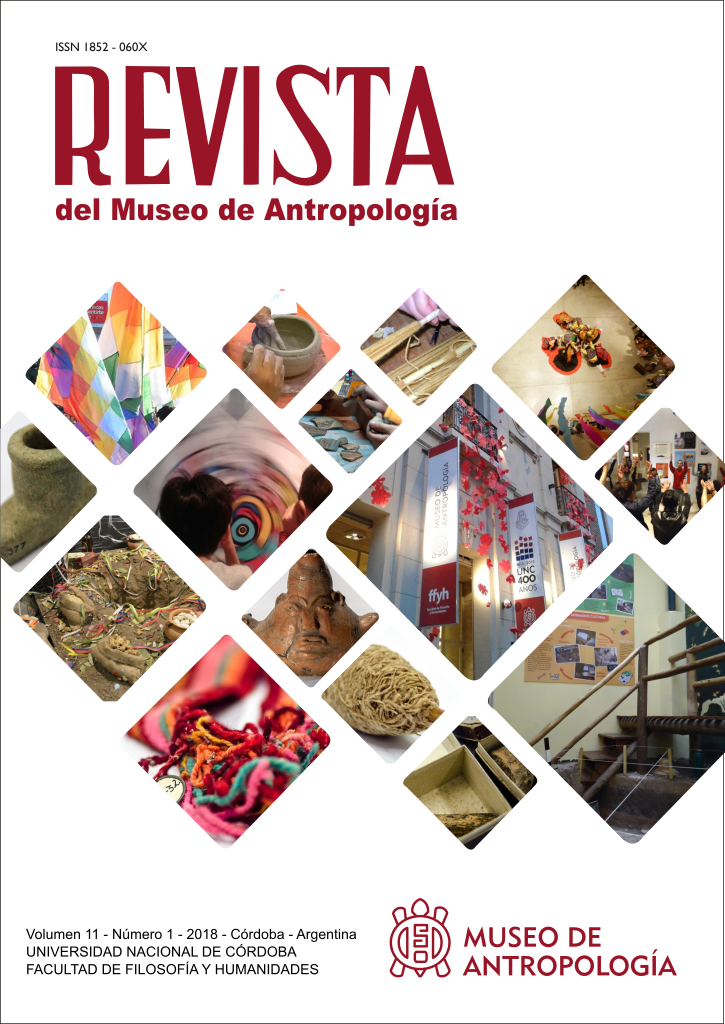Science, politics and culture in the conflict over the native forest in the province of Córdoba, Argentina
DOI:
https://doi.org/10.31048/1852.4826.v11.n1.19917Keywords:
environmental conflicts, forest protection law, scientific knowledge, political processes, legitimacyAbstract
This article analyzes the role of scientific knowledge in contemporary environmental conflicts. Specifically, it addresses a conflict regarding the reform of the forest protection law in the province of Córdoba, Argentina. Understanding the cognitive, political, social, cultural and economic struggle between parties in favour and against the law reform as a “total social process”, the aim is to analyze the way in which scientific knowledge can be socially produced as a political instrument for claiming and demanding participation in matters such as environment “destruction”, “sustainable exploitation” or “conservation”. The conclusion shows that this particular conflict is part of a broader struggle on the legitimacy of a social and environmental crisis in Córdoba. As a necessary asset, science is not enough. Scientific knowledge is translated into other forms of language in order to communicate the social importance of the forest and the necessity to stand against interests that would put it in danger.Downloads
References
Bixler, R. P. (2013). The political ecology of local environmental narratives: power, knowledge and mountain caribou conservation. Journal of Politcal Ecology, Vol. 20., 273-285.
Deon, J. (2015). Sierras chicas, conflictos por el agua y el uso del suelo. Relaciones de poder en la gestión de cuencas. El caso de la cuenca del río Chavascate, Córdoba, Argentina. Revista del Departamento de Geografía. FFyH – UNC, pp. 162-189.
Escobar, A. (1998). Whose Knowledge, Whose nature? Biodiversity, Conservation, and the Political Ecology of Social Movements. Journal of Political Ecology Vol. 5, pp. 53-82.
Gofman, A. (1998). A vague but suggestive concept: the ‘total social fact’. En: James, W. y N.J. Allen (eds.). Marcel Mauss. A centenary Tribute. Oxford: Berghan Books., pp. 63-70.
Gudynas, E. (2004). Ecología, economía y ética del desarrollo sustentable. Montevideo: CLAES.
Ingold, T. (2012). El diseño de ambientes para la vida. En Ambientes para la vida. Conversaciones sobre humanidad, conocimiento y antropología (pp. 19-32). Montevideo: Ediciones Trilce?: Extensión universitaria, Universidad de la República?: Facultad de Humanidades y Ciencias de la Educación, Udelar.
Karsenti, B. (2009). Marcel Mauss. El hecho social como totalidad. Buenos Aires: Antropofagia.
Koberwein, A. (2016). “Desarrollismo y contradicciones territoriales en el contexto de una crisis hídrica y ambiental en las Sierras Chicas de Córdoba, Argentina”. Revista CUHSO 26(2): 45-70. Universidad Católica de Temuco.
Koberwein, A. (2017). “Transformaciones sociales y conocimiento en un contexto de crisis hídrica en la provincia de Córdoba, Argentina”. Anthropologica. Año XXXV N°38 (pp. 95-118). Departamento de Ciencias Sociales, PUCP.
Mauss, M. (1991) [1923-24]: Ensayo sobre el don. En Sociología y Antropología. Madrid: Tecnos.
Romero, A. P. y Z C. Díaz. (2010). El medio ambiente desde las relaciones de ciencia, tecnología y sociedad: un panorama general. CS N°6, pp. 331-359.
Stagnaro, A. (2015). Representaciones culturales e identitarias en cambio: habitus científico y políticas públicas en ciencia y tecnología en la Argentina. Cuaderno 52. Centro de Estudios en Diseño y Comunicación, pp. 313-326.
Yaerly, S. (1993). Standing in for nature. The practicalities of environmental organizaions use of sciense. En: Milton, K. (Ed.) Environmentalism: the view form anthropology. London; New York: Routledge., pp. 57-70
Documentos e informes citados
Kopta, F.; Cingolani, A.; Conti, G.; Cáceres, D.; Cuchetti, A.; Barri, F.; Tamburini, D.; Torres, R.; Martínez, M.; Enrico, L.; (2016) ¿Por qué es necesario mantener la superficie de bosques nativos con Categoría I (Rojo) en la provincia de Córdoba según el mapa vectorial de la ley 9814? Análisis crítico de la Propuesta de Ordenamiento Territorial de los Bosques Nativos para el arco Noroeste de Córdoba “Producir conservando y Conservar produciendo” elaborada por CARTEZ. Disponible en: http://www.fundeps.org/sites/default/files/respuesta_otbn_cartez_final-3.pdf
Downloads
Published
Issue
Section
License
Copyright (c) 2018 Adrián Koberwein

This work is licensed under a Creative Commons Attribution-NonCommercial-ShareAlike 4.0 International License.
Those authors who have publications with this Journalaccept the following terms:
a. Authors will retain their copyrights and guarantee the journal the right of first publication of their work, which will be simultaneously subject to the Creative Commons Attribution License (Licencia de reconocimiento de Creative Commons) that allows third parties to share the work as long as its author and his first publication in this journal.
b. Authors may adopt other non-exclusive licensing agreements for the distribution of the version of the published work (eg, deposit it in an institutional electronic file or publish it in a monographic volume) provided that the initial publication in this journal is indicated.
c. Authors are allowed and recommended to disseminate their work on the Internet (eg in institutional telematic archives or on their website) before and during the submission process, which can lead to interesting exchanges and increase citations of the published work. (See The Effect of Open Access - El efecto del acceso abierto)












